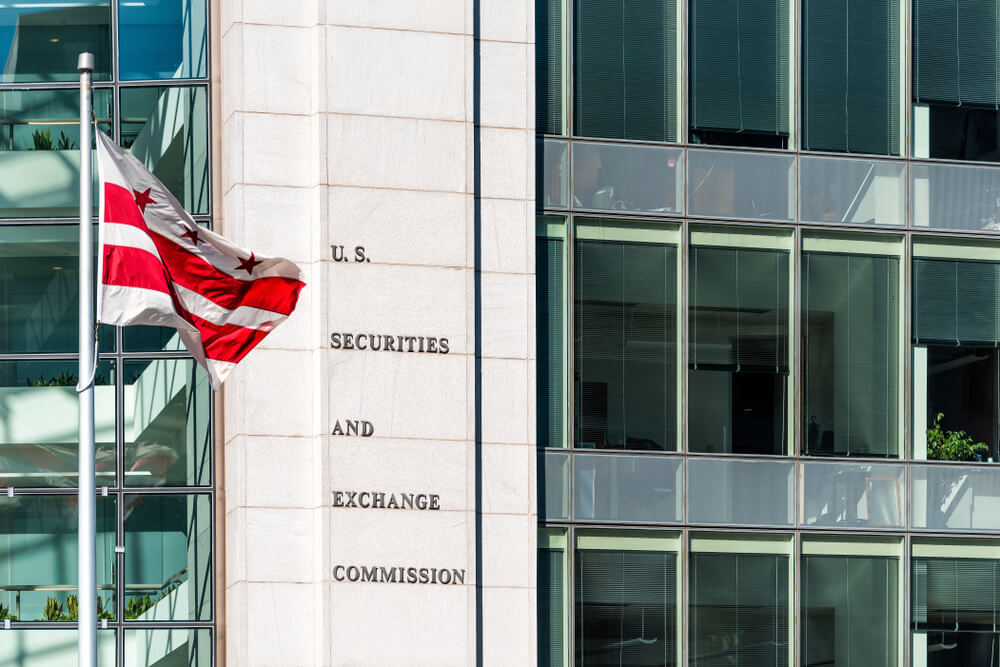ImpactAlpha, Dec. 5 – It took a while, but advocates for the integration of environmental, social and governance factors in investment decisions are mobilizing their allies and their arguments to counter the well-coordinated campaign to demonize ESG.
The attorneys general of 16 states and the District of Columbia wrote to congressional leaders last month rebutting the anti-ESG arguments made by 19 other attorneys general in an August letter to BlackRock CEO Larry Fink.
Coalitions of climate, labor and “stakeholder capitalism” organizations are coordinating their messaging, social media and state-level organizing to more quickly respond to rhetorical attacks and legislative proposals to roll back ESG policies and practices at state agencies and pension funds (the images in this post were shared with the members of ESG Amplify, a coalition organized by the shareholder advocacy group As You Sow).
The U.S. Department of Labor last month reversed Trump-era guidance and again gave its blessing to the consideration of ESG factors in selecting investments for pension fund beneficiaries (see, “For pension fund managers, Department of Labor puts ESG back on the table – again”).
Most significantly, investors have largely shrugged off the political noisemaking to reaffirm the need for disclosure and management of material risks around climate change, workforce management and corporate governance. In the third quarter, sustainable funds attracted a net inflow of $459 million – a trickle, but a sharp contrast to the larger universe of U.S. open-end and exchange-traded funds, which saw outflows in the quarter of $86 billion, according to Morningstar.
The new confidence will be on display at the panel, “Reclaiming ESG,” which I’ll be moderating at this week’s Mission Investors Exchange conference in Baltimore. Joining me on the panel will be Ford Foundation’s Roy Swan, Sorenson Impact’s Jim Sorenson, Capricorn Investment’s Kunle Apampa and Lisa Woll of the Forum for Sustainable and Responsible Investment, or US SIF.
“Most people are on our side when you describe what ESG is about in plain English. It’s about companies disclosing and managing their positive and negative impacts on workers, people, planet and communities,” said Chris Jurgens of Omidyar Network, which commissioned polling last summer to gauge public opinion and test messaging strategies.
“The majority agrees US companies should do this,” Jurgens said in a recent briefing for the Coalition on Inclusive Economic Growth. “Companies that do this are better companies and disclosure is important so people can be informed to make choices.”
Concerted opposition
The attack on ESG did not end with last month’s U.S. midterm election campaign. Last week, Florida’s chief financial officer said he would pull $2 billion in state assets managed by BlackRock, which has become a lightning rod for anti-ESG politicians. In October, Louisiana’s treasurer pulled $794 million from BlackRock’s management, while Missouri’s treasurer pulled $500 million.
And Republican-led states are continuing to press a broad legal offensive. Last week, 13 attorneys general, led by Utah’s Sean Reyes, asked the Federal Energy Regulatory Commission to bar Vanguard from buying stakes in public utilities, citing Vanguard’s climate commitments under the Net Zero Asset Managers initiative and the Ceres Investor Network.
Separately, 17 attorneys general asked United Parcel Service and FedEx to clarify their policies for tracking shipments of guns and gun parts and sharing that information with law enforcement agencies. In October, 19 Republican attorneys general issued subpoenas to a half-dozen large banks to probe their commitments to the U.N.’s Net-Zero Banking Alliance.
The State Financial Officers Foundation, which has spearheaded the anti-ESG campaign, met in Washington, D.C., last month for its annual conference. The American Legislative Exchange Council is pushing model legislation to prohibit consideration of “non-pecuniary, environmental, social, political, ideological, or other goals or objectives.” The nonprofit Texas Public Policy Foundation, backed by fossil fuel interests, has spearheaded campaigns to block offshore wind projects and fight coal plant closings.
“The effort is very well organized. It’s well resourced, it’s coordinated and has really big heavy hitters behind it,” Amit Bouri of the Global Impact Investing Network said last month. “I think we have some catching up to do.
“We are at a moment where there’s a lot of momentum around ESG globally and there’s a lot of momentum around impact investing globally,” Bouri said. “We don’t want people who are considering these strategies to get spooked.”
Indeed, the backlash is having an effect. The share of investors incorporating ESG factors fell from roughly half in 2021 to just 35% this year, according to a survey of institutional investors by the consulting firm Callan. Those who said they planned to adopt ESG in the future also dropped 20%, from a high two years ago of 40%.
The Global Financial Alliance for Net Zero has rolled back requirements to phase out fossil fuel support to appease banks in Republicans’ crosshairs. Fortune reports that the consulting firm Deloitte has dissolved its ESG practice and now calls the unit Sustainability, Climate and Equity, or SCE. “The backlash against ESG meant companies put a brake on speaking out externally on social issues,” the magazine says.
Counter-messaging
The Omidyar-commissioned survey by the public opinion polling company GQR found bipartisan majorities in favor of companies measuring their impacts on workers, as well as on communities and the environment. The pollsters suggested the ESG proponents frame disclosures as transparency measures that “allow people to work, shop, and invest based on their own values and beliefs” and to “advocate for workers and protect their pay and treatment.” For investors, they counseled, highlight the “need for ESG data to pick companies with good long term prospects.”
The U.S. Impact Investing Alliance likewise has prepared messaging points that ESG proponents can use to make their case. Suggestions for “positive framing” include:
- ESG investing is smart investing.
- ESG investing is safe investing.
- ESG disclosures are about transparency.
- ESG investing supports free markets and empowers investors.
- ESG investing helps build a strong, competitive economy.
For soundbites to push back against opponents and “call out where the other side is promoting bad faith arguments and misconceptions,” the Alliance recommends:
- Stop government overreach in the free market.
- Let investors get the information they need.
- Attacks on ESG are attacks on American workers.
- Attacks on ESG are a last-ditch effort by special interests to keep America stuck in the past.
- ESG isn’t woke – it’s just smart investing.
The Berkeley, Calif.-based shareholder advocacy group As You Sow has organized a coalition, ESG Amplify, to share a library of social media content, including graphics, videos and messages, to help drive a pro-ESG narrative (sign up through this form).
“Amplify provides content to grow your audiences, establish you and your colleagues as thought leaders, and to counter the ESG backlash in real time,” says Ryon Harms of ManifestSocial, who is coordinating the effort. “Together we can work to eventually overwhelm the regressive anti-ESG sentiment with an avalanche of positive messages on social and traditional media.”











